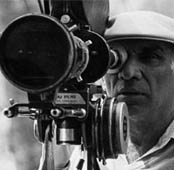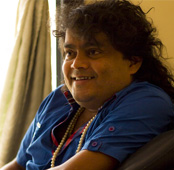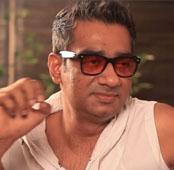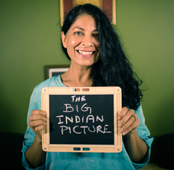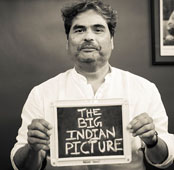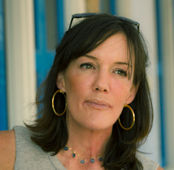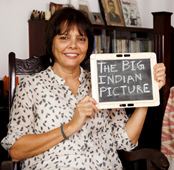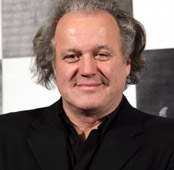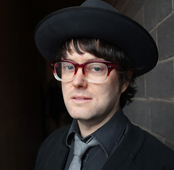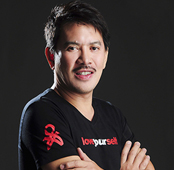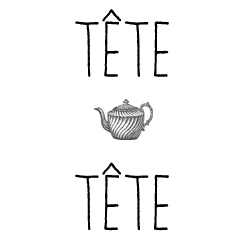
Farah Khan was born into a film family. Her father lost everything, making movies that did not do well. They were poor and isolated overnight and the family fell apart. But Farah held on to her dark sense of humour, her affection for irony and survived. Starting off as a choreographer in small budget films, she went on to turn film choreography on its head.
After that very successful stint, she took up direction at a time when women directors were still a rarity in the Hindi film industry. But she refused to let her gender define her. Her films were not niche treatises on women’s issues but hugely mounted commercial blockbusters. That is not to say that she would toe the formulaic line— that is just not Farah. Instead she took the formula and contemporized it, like she did her choreography. Presented it with a twist of tongue-in-cheek humour, as she does her life in this interview.
An edited transcript:
You made your acting debut in 2012. But you have being doing cameos for a while.
As myself.
As yourself, but you have been doing cameos for a while. As it turns out—correct me if I am wrong—your first two cameos were in the early eighties.
In the early eighties. I was a dancer in the early eighties. Not early, but I would say late eighties.
So by the dint of the fact…
’85-’86.
…the fact that you are a celebrity now they have become cameos in retrospect.
They are not really cameos. I was a back-up dancer. I did dancing as a background dancer in a certain film.
There are two particular films that stand out.
Yes, tell me…
One was in 1981 by M. S. Sathyu. Were you part of that film Kahan Kahan Se Guzar Gaya?
Kahan Kahan Se Guzar Gaya. I was a choreographer for that song.
You were a choreographer for that song?
Yes, I was a choreographer of that song.
That was before…
I must say you have done your research rather well because even I have forgotten about this movie. It was a title song called ‘Kali mai diya silai’, and because it was such a low budget film. And M. S. Sathyu lived in my building, the building that I lived in.
This is before Jo Jeeta Wohi Sikandar.
This was much before. Jo Jeeta Wohi Sikandar was in ’92.
So this was your first film as a choreographer?
This was the first song I did. I don’t think I was credited. And I was paid some 500 bucks or 300 bucks for it, and because it was so low budget we had to dance in it too. Choreograph and dance, because there was no money for dancers.
And at the other end of the spectrum there was (3D) Saamri.
You know though Sajid and me put mud on our faces. We tried to cover ourselves up. For Saamri, we had a dance group which used to do breakdancing at that time and that was, I think, around ’85-’86.
’85, ’85…
So we had a dance group that used to do breakdancing. And I was the only girl in there. And because Javed Jaffrey was like the ‘it’ dancer at that time so he said that my father (Jagdeep) is doing Saamri and he’s doing a Michael Thriller dance in it, so why don’t you all come and dance and be in it.
And Bappi Lahiri was singing the song?
Yeah Bappi Lahiri was singing, and we shot it in a graveyard at Chandni Studio. Sajid and me at that time said, “Listen it’s too tacky, what shall we do?” maybe thinking that in the future we may become stars or something. So we had taken mud and put it on our faces, so nobody would recognize us.
You know that song is on YouTube right?
Ah, but are they saying that I am in the song?
No they’re not saying.
But now they will after watching your show.
Yeah so you’re not recognizable at all.
Yeah. Because also I was some 40 kilos I think, at that time. I was thin. Coming out of a crypt.
You were very young…
So I was a back up dancer. I’ve also danced in Jalwa behind Archana Puran Singh. ‘Feeling Hot Hot Hot’, that is the song.
Okay that must have been real fun, that I envy you for. I would have really loved to dance…
The only reason I did that song was because they were flying us to Goa. And I had never sat in a plane. And I have never been to Goa. So I was like “Arre wah! Double bonanza, chalo!”.
This was when?
This must have been in ’85-’86.
Okay. But tell me, do you have any memory of M. S. Sathyu and the Ramsay Brothers, the two cameos, the two things that came up when I was researching you? Did you have any observations? Like do you remember observing these directors at all at that point in time? It must have been really, like really, different films.
I mean with Mr. Sathyu, because I know him, he lived in my building; it was in some little small school ka auditorium mein. I remember it was like really ‘chota (small)’. You know we had like one day to finish the song or something. I would have to say, with the Ramsay Brothers, they were very, very nice. We got our payments on time. We were well looked after. They were very organized. We finished our entire shoot in two nights. They were very different from what you would imagine them to be, extremely professional. They were the only people… usually we did this and we would be running behind people for our money for ages, you know. But here we were paid at the end of the night so they were really… we had a good experience, other than the fact that we had to wash out that mud for one hour.
Okay. So it was a spoof of Thriller, that song?
Yes… I don’t think, haan yeah, it was a spoof I guess. Yeah Jagdeep was dancing to it.
Yeah very obviously Thriller.
Yeah, very obviously Thriller.
Yeah with the MJ music and coat.
Yeah and with the jacket, yeah.
And Thriller, like you’ve said, has been one of the biggest reasons why you became a dancer.
Yeah, absolutely.
So tell me about your early Michael Jackson fixation. How old were you when you first saw Thriller?
I was quite old when I saw Thriller, must have been like 17-18.
That was not quite old.
That was quite old. I mean people start dancing when they are younger and all. I started dancing when I was almost 18.
Okay.
So I think the ‘80s I still… I don’t know, maybe its nostalgia, I still believe it was the best time for music and you know, at least American music.
Yeah, pop.
We were all into Cyndi Lauper, Madonna and Michael Jackson, so I had absolutely no training in dance and I saw Thriller in my neighbour’s house, because we had a video. It was just like one of those moments when you’re like, “What the hell is this and I have to do it”.
What were you doing at that point of time?
I was in college and really, like, doing nothing.
You were in St. Xavier’s ?
I was in Xavier’s.
Why did you take Sociology?
Because it was the easiest subject. You can go on writing crap.
It was the easiest subject?
Yes, what is sociology? You can get by just reading it. And we hardly attended class. I actually took Sociology as a major later but I did my B.A. through correspondence— because they kicked me out of college for non-attendance, because I was only in the canteen. And, by the way, the Malhar dance competition was started by me and my friends.
Really?
Yeah, that Western dance competition, that they still have… right?
Yeah.
That wasn’t there when we were there. And we said “How can you not have one?” You should have one, so Father (the priest who ran the college) was like “Okay you do it in the canteen the first year, because the hall is booked solid for all other activities.” So we put up four tables on the canteen floor and we did Thriller. And there was nobody in the hall, because everyone came, and the whole quadrangle was full watching us do Michael Jackson on the tables, and then from next year they made it legitimate. They made it a proper competition.
Okay so tell me how you taught yourself dancing.
By watching videos. And also really at that point we used to keep going for these afternoon jam sessions you know.
What were these afternoon jam sessions?
Because in colleges like N. M. and Mithibhai they used to have afternoon socials. They were called ‘socials’.
So they were like dance parties?
Yeah, they were dance parties in the afternoon. Because at night, parents may not allow you out. So they were dance parties in the afternoon.
So there were lights and everything?
Yes, it was like a disco. And they used to book like one banquet hall somewhere, like that, or a nightclub in the afternoon. So literally when you go there, you find people who dance, you know? And then you meet them. And then we met lot of people who were great dancers at that point. And they are like literally mini stars around college and all. And then we met up with them. And then we formed a dance group. There were four boys and me. And then we used to dance. We used to watch videos to invent steps. And we used to practice on the terrace of my building or on Juhu beach.
And did you start dancing professionally around then?
Yeah as professional as you could get at that time… yeah, like new year’s night we used to be having five shows. So the highlight was we used to book a car and then travel.
That’s quite big.
Yeah, five shows we used to get.
What kind and where did you get shows?
Dances at like… a retreat at Madh Island. You know— the new year’s entertainment, do the half an hour performance…
Okay, I have found a very strange entry on the internet about… you always look so skeptical about what might be on the internet. Don’t you Google yourself?
Not at all
No, this is strange because it is just one of those things… There is an entry that you had a dance partner called Hemu Sinha.
Yeah, Hemu.
There is an entry that you guys won something called the ‘Friendship Award’ in the duo category in 1987 for being nice to participants.
In 1986. This was like the Miss Congeniality award, it was actually the World Dance Championship in the UK and we went from India and we won the Indian Championship. And you know, my next movie, Happy New Year, is all about a World Dance Championship.
Oh my God!
So yeah, it’s really funny because it’s come a full circle.
Okay, oddly this was not there, it just said that you won some…
It was a World Dance Championship in the UK. There were 32 countries and Hemu and me had won the Indian Championship and we went there and of course, when we saw the other countries we were like, listen… but me, being me, had taken like packets of bindis and bangles and things like that to just like show that we were from India. I think that was the only reason we won. Hemu did nothing. Hemu did nothing… so we won the Friendship Trophy over there. Like everyone voted for us as the most friendly…
People.
Friendly country
And how old were you then?
It was in ’86,I must have been 20. But at that point I think I knew what I wanted to be because when I had read there, there was this big folder there, they had all the people from each country saying: My ambition… and when I found my folder I had written my ambition was to be a film director.
A film director?
A film director. So maybe at that time I knew that, okay, like…
You had already… from not knowing what you wanted to do in life, you went straight to….
Choreography was not an option…
Why was it not an option?
All choreographers used to be 50-60 years old. They used to be old dancers who became famous…
Come on Farah, you’ve been a film director. There was not a single film woman director in mainstream, abhi bhi nahi hai… (even today there are hardly any) ok maybe one or two maybe.
Abhi bhi hai… kaafi hai (there are many today). But I’m saying at that point I was in Xavier’s, where people used to look down on Bollywood movies.
Okay so your first exposure to films would have been through your dad?
Yeah my first exposure was through my dad.
Did you watch his films?
Some of them which came out when I was small… the earlier ones I haven’t watched. I think they are lost, sadly. I’ve collected all the posters of all, most of, his movies.
But what about…
But the negatives of the earlier ones cannot be found anywhere
None of them?
One or two which I have, one or two…
So what was the first film of his that you remember seeing?
It was a movie called Watan Se Door which was a copy of The Great Escape which is about these Indian soldiers caught by the Chinese and they are in the war camp and… so it was just The Great Escape basically and how they escaped from there and…
So you watched it on… ?
We used to watch it on every birthday at home, the bed sheet would be put and the projector would be called for and all the building people would come to watch.
Any other films of his you can remember?
Yeah lots. Do Matwale, Chaalbaaz, he used to make all these fun movies, I now realize that they were all a copy of some English movie or the other, but they used to be great fun…
Do you remember any film characters from the film industry at that time that you might have met through your dad?
Yeah a lot of them, like Dara Singh was a very close friend of my dad’s.
And were you a fan?
No he was Dara uncle, Sajid and me used to be taken to the wrestling matches at the NSCI and all, fab (fabulous they were, very exciting, all those wrestlers would come from abroad and Dara uncle would defeat all of them. Now to think of it, it must have been rigged but… so yeah a lot of people like Mumtaz, who also got a break through my dad. And of course my aunts were also in the movies, Daisy Irani and Honey Irani, so yeah…
So you obviously didn’t have the snob thing of not associating with Bollywood or not associating with Hindi masala movies despite the fact that…
No I mean, for us, Sajid and me, till we reached college up to a point, in Xavier’s maybe, where you don’t openly say that, “I love Bollywood”, but up to that point, I was an encyclopaedia of Hindi ‘70s movies and Sajid was an encyclopaedia of the dirty ‘80s movies that came out during his teenage years. But we were hardcore film buffs. Like, what was there to do? We didn’t have a TV at home, we didn’t have anything. So movies were it, like going for a movie was a big deal…
Where did you live then?
We lived in Juhu, in a really small society called Nehru Nagar Society. All the people that lived there were either B-grade directors or… But in a way, it was very nice because we all made some small movie here or there
Okay you know you’ve spoken about it a lot, but you have mentioned how your dad’s colleagues stopped coming home after he went through a bad patch in the movies. You’ve spoken about how your family went from riches to rags, how your family split up because of it. Clearly you saw the worst side of this film industry. You know…
Yeah like when you put it in a movie, one would say how ‘filmy’, like this would ever happen, but it was like that literally. I saw my gramophone being sold and being taken away… So it was like something which, if you saw it in a movie, it would really seem a bit over the top.
And yet you were not hesitant to join the film industry?
I don’t think we were equipped for anything else. You know Pragya the thing is, I was very good at my studies. But the thing is the love for cinema comes from your childhood. You know it’s like if you love dancing. So luckily for me I found a passion other than that, which was dance, which was…
Which was an integral part of films.
Which luckily for me turned out well because I was into Jackson, and was into Western dance. I had no clue about Indian dancing. So that, I think, that kind of helped me get a foothold into films. If I had just come and said, “I want to make a movie”, who would have given it to me?
But there was no hesitation also Farah, ki yaar, there’s something you just start associating, which is like…
But see I was not thinking that I’m going to be… I was thinking I’m just happy being on a set and you know, literally, because we had nothing. You know, my dream used to be, I used to tell Sajid, I used to say, “Listen, I’ll become a top choreographer, then I’ll charge 10,000 rupees for a song. I’ll do 4 four songs a month and we’ll have 40,000 a month and like, we’re sorted man.” So you know our dreams were so small and we were so happy with so little that anything that came was bigger than what we had hoped for. That’s why I don’t take it seriously and also don’t attach myself to the material side of it because our dreams… I would have been happy with 40,000 a month. And I then feel that God’s really been kind…
Okay tell me Farah. So clearly you were not that angry or bitter about it despite having gone through very hard times.
I was never a bitter or angry person. Sajid was for a long time…
So how did you, like what helped you, now when you look back?
Now I am telling you when I look back, the dance really helped me because there was a channel to do something. The house situation was so bad that after Xavier’s (college) would get over, say by 3:30-4 (pm), I would just hang around till around 7 in the evening, because I didn’t want to come back home. Because it was a little depressing. So I would just hang around there with my friends, who were the hostel boys. They would take me to eat something. But when the dance came in, it really gave us something to do, you know. All your energies are then focused and anyone who dances cannot be a sad person, you know dancers are usually happy and…
You’re surrounded by that energy…
Yes, you’re surrounded by that energy. And at that time the dance scene in Bombay was really like how you see it in Step Up. They would go to a disco and there would be one group there and you would want to do your little showing off over there, so I think that really kept me away from all sorts of things. I mean, I could have easily gotten into drugs or having stupid boyfriends.
Yeah because I would imagine it’s tougher for a girl to deal with alienation from her father. Also because you were away from your father for the first time.
No, then we went back to live with our dad. We were away from our mom.
Yeah
So it was very…
And this was just before your dad passed away?
Yeah, so it was very confusing and also it was not like we just settled in with our mom in our house there. And then we had to go back and stay with my dad, which Sajid was very excited about, because all his friends were in that building and my mother and her friends used to keep a watch on him. Here he was free, nobody was asking him where he’s going and when he’s coming. He had become a wild child. We used to think that Sajid would go to a juvenile delinquent home, so for him to do that, I think was a bigger achievement than mine.
So other than dance was there any other reason you dealt with it better than your brother did?
Yeah I was older, I am five years older than him. Also when you look back and analyze it any which way I was sent to a very normal school, St. Theresa’s Convent, which was an all girls’ school and there were people from a lower income background than me. And Sajid went to Maneckji Cooper High School where all the elite kids went, so he was probably the poorest child there. So that also gives you a complex.
What was the hardest to deal with? I remembered you joked somewhere about being poor cousins with Zoya and Farhan, did you actually feel like a poor cousin?
You know, to their credit, they never made us feel like poor cousins.
No they don’t have to make you feel like…
No but we were the poor cousins. I was wearing hand-me-downs, but Honey aunty and Daisy aunty really supported my mom, they took us in and we stayed in their house for so long. But you do feel that. But my mom still has a more of a… she still feels… I sometimes tell her we aren’t the poor cousins anymore… but she still feels that complex and that gratitude and…
I guess she has had to live with it longer than you guys…
Yeah Zoya was my best friend, she used to follow me everywhere and she was much younger. So she would look up to me when I used to go for dance shows and she used to come for every dance show and hang around backstage. And Farhan and Sajid were very close…
So clearly a sense of humour is something you’ve really relied on…
That’s our trait, our family trait, my dad, my mom and all my aunts. Everything finally ends up… however tragic it may be one month later, they would make a joke of it and find it funny— whether it was my grandmother’s funeral or whatever.
Is there anything you find hard to laugh about?
Yeah there are a lot of things I can’t laugh about. I don’t want to talk about them because I start crying, like when my dad passed away. It was really not something I would want to talk about.
You’ve observed the film industry from the seventies, through your father and up till now, of course. Do you think it’s still the kind of place where your colleagues would, or at least some of your colleagues would desert you if your film doesn’t do well? If not, is it because people have changed with the economic realities of the film industry?
No I think that kind of acceptance was there. Though, if you were riding high, ‘Chadte suraj ko salaam… ,’ that’s been going on since time immemorial.
But that’s going on even now.
Of course.
And you’re saying that extreme… like one doesn’t now hear about cases….
Now is worse I think.
Really? Because one doesn’t hear of cases like your dad or Raj Kapoor.
Because now you’re not putting in your personal money.
So you’re saying the economic realities have changed.
Yeah it’s a corporate thing. Raj Kapoor would mortgage the entire R. K. Studios. So, because of that passion for cinema, my dad put in all of his own money. So, like, once it’s gone, you’re like bankrupt. That doesn’t happen anymore to a great extent because it’s all corporate.
Yeah and then at that time there were no other channels and the underworld or the corporates, like you said. None of that was there…
It is very difficult for you to become bankrupt over a movie nowadays because it’s all so channelized and corporatized, and a very few… who puts in their own money now? Only Shah Rukh Khan I think.
You know you spoke about passion for cinema, I was reading some interview of yours, in which you were talking about how the earlier generations, up to your generation, the generation of superstar Khans— everyone had some sort of passion or feeling which also perhaps led to scandals and fights which fuelled the media. When you see the new generation, how pragmatic and clinical they are about everything, do you feel it’s boring or…
It’s boring. Like I said if they ask me there are not going to be any great friendships or any great enmity anymore. I think they were asking about all the fights and I think the fights were there because there was great friendship and love at some point, great emotion for all of us who came together. But now I don’t think there’ll be any great enmities or any great fights because nobody really cares a damn. They’re not even friends with each other and I think in that sense it is a bit boring and clinical, like, “You’ll do your job and I’ll do my job and… ”
And we’ll all be polite with each other.
I think the last time you saw a great show of love and affection was that song in Om Shanti Om. Everyone just came, why would they come? It’s a Shah Rukh Khan movie and I’m the director. Some came for me, a lot of them came for him. Few didn’t come, it’s fine. I mean when we were on the set and I think that was the last time the heroes were bonding together and there was a genuine affection and they all hung around. It was a party. They all hung around after their shot was over. Salman and Saif hung around, they went to their van, they had a kind of a party over there and they came back when Dharamji was giving his shot. They waited for the shot and then jumped in without being asked. Who does that anymore?
That might have been the last…
Yeah the last great filmi party.
I just was gonna ask you... You’ve talked about the film industry changing. You’ve also seen Bombay change in the 70s…
They don’t even call it bloody Bombay anymore.
I still call it Bombay.
Yeah even I call it Bombay.
Do you miss anything about this city that has changed?
It’s just become so intolerant. I remember when I was shooting for Oh Darling! Yeh Hai India! I think it must have been in ’93 or ’94 maybe. And we used to shoot all night and we used to pack up at 3:30-4 from Marine Drive and I would take a cab alone and I would never doubt that I would reach home safely. And you know… my daughters, I get so worried now and even if they are going by school bus, I’m going to have a car following to make sure. It’s just so sad, it’s just regressing and I used to wear little minis and go out and dance and never got my ass pinched or you know, just…
It used to be a great city for women, even 10 years ago it used to be a great city for women.
I mean, shutting down places at 10.30… and I really think it’s not because we’re showing, like they say “item songs bandh karo (stop the item songs)”. No, I feel it’s because our sexuality is being repressed that all these things are happening. I don’t think so many rapes happen in Amsterdam, where it’s out in the open. So I’m saying its being repressed and that is why these incidents are happening more and more. It’s because we’re always talking in hushed whispers and our censors, I feel, have become rubbish. What are they asking us to cut?
Yeah, there’s no consistency.
And when I see U/A movies I’m shocked. I can take my children to see, one bhalla is being poked in the stomach, men are being cut by saws and axes and it’s a U/A film. So there’s something clearly very wrong, so I think we should take the name ‘vastu wise’ we should go back to Bombay, where things were hunky dory, till we became Mumbai.
You recently spoke about 1993, how when the riots were going on, you had neighbours who protected your family against lynch mobs. Was that the only time in Bombay that you felt singled out, for being a minority?
I never thought of myself as a minority Pragya, I still don’t. Because maybe we’re also very liberal, we come from a different background. But at that point it was very scary, because people would literally go and remove our name plates from the building and we were the only Muslims in the entire society, and, till then, never once were we made to feel… We had a very Punjabi sense of humour and…
Also your mother was Parsi.
Yeah my mother was Parsi, my father was Muslim. We were never forced to do the namaaz. My mother was very anti-religion. Like, she’s made me sign in her will that if she dies and, God forbid, we do any religious ceremony, her ghost will come to haunt us. Like: “Don’t you dare do anything.” So we were that liberal.
Was it an incident you just put aside or did that change something?
I think I started doing my rozas, I became more Muslim than I was earlier. I read the Quran to find out about my religion much more. Of course now I’ve gone back to being spiritual rather than religious.
You could have spun a positive outtake from a…
No, because I think it just made people want to know more and why and it just unites them a little more.
But after that you haven’t felt that? A lot of people talked about how the character of the city changed after ‘93.
I feel like there is no character anymore. I’m telling you in my movie we have a song where we have to talk about India and why it’s… and there’s really nothing inspiring us right now to… it’s so sad! It’s like, “Why do I feel proud of my country?” It’ll will take me ten minutes to think and find something, that I am proud of about my city or country. It’s really sad.
Yeah the only thing that remains are the people, our sense of humour, our unabashedness…
No I think our people are also becoming very blasé and…
Well hopefully by the time it fully materializes, we’ll be dead.
Yeah but our kids will be there, no?
You have kids, you’ll have to worry about that…
You will also have kids one day so…
I’ll worry then.
You have broken a lot of rules, in the sense that you were not a trained Indian Classical dancer. Being a female choreographer— was that a hindrance in the beginning?
Maybe in people’s minds, yes. In the beginning they would not give me Hindi… big ‘Indian’ songs to do. They would say: Love songs kara lo. She can only do Western, or she can only do love songs. Because I had done ‘Pehla Nasha’ then. I really love Indian Classical. If you tell me to come and watch Indian Classical, I love it. I just think it’s the most beautiful dance form. I was so sad because I really did not have the money to ever learn it or the time to take off for two years.
Exactly, you need a lot of time.
You need time and I was always earning, so I would really want my daughters to learn Odissi or Kathak. I just think it makes you so beautiful and so elegant and graceful, and….
And very happy.
So I got assistants who were trained in that and even when I have to a mujra, I would take a class for a month. I would call the teacher to come and teach me at least the basics. I think it helped also in a sense that you are not bound by rules of the form that you have learnt. Because I did not know the rules, I was inventing and doing what I want. Otherwise sometimes you are so trained that you feel ‘yeh kaise, yeh kar nahi sakte (how do I do this, I can’t)’. It also limits you in that sense, you want to be in that box. But sometimes I feel that when Saroj Khan choreographs, her inherent training is an asset to the way she makes the girls do that. I would have loved to do that but I didn’t, so I made the best of what I knew.
Looking back, how do you feel you have contributed to the way choreography has changed over the last two decades?
Last 20 years. See I think, well…
Starting with Pehla Nasha, which was also not very the kind of song that was…
I may sound very immodest. I think before I came on, it was very, very ‘uncool’. Bollywood dancing and film dancing was ‘uncool’. I think I brought about a change, where it was cool to like… whether it was Kuch Kuch Hota Hai or Dil Se or Virasat, even in the village songs there was an inherent aesthetic value to it. I think the younger generation reacted to that. It was not that hardcore crass and filmy. Also the look of the song, the background dancers, I would credit myself. In Jo Jeeta… I went out of my way. I fought with the unions, because I said they are college students in the film, so I would get college students who will dance behind. Not 45 year old fat men and women dressed in frilly frocks. So you know the whole look, and now getting these background dancers who are slim and athletic looking and fit looking. I think that credit has to go to me because prior to Jo Jeeta…, the dancers at the back were really, I mean… And all dancing to Khud Ko Kya Samajhti Hai… all balding fat men dancing. It wasn’t their fault because it was the Cine Dancer’s Association that would not take new members for years on end.
Okay, if I had to ask you to name any 6 songs with which you felt you turned a corner, which ones would you pick?
I think definitely Pehla Nasha to begin with. I think I really turned the corner with Dhol Bajne Laga because people woke up and said, ‘She can do an Indian dance’. I think also Ruk Ja O Dil Deewane from Dilwale (Dulhania Le Jayenge), because before that, I had not got a big song to choreograph in a very big film. I mean 1942: A Love Story was okay, but they were still love songs. This was like a full dance number. I think Dil Se, Chaiyya Chaiyya was huge and though the movie tanked, it was my international calling card. I got Bombay Dreams because of it, I got a Chinese movie, I got Monsoon Wedding. It has all happened because of Chaiyya Chaiyya. Only six songs, you’re saying?
Or you can name more…
I think the way songs were being done, I think in Main Hoon Na, the qawwali and that whole kitsch element has come through because of Main Hoon Na. You know that ‘70s aesthetic kitsch, whether it was the pink lighting or the green. Now you just see it so often that you have even forgotten the origins of it. But it all came from the qawwali from Main Hoon Na. The way it has been shot with the swans and the lotus, all those elements which we had not seen, which we used to see in the fifties Hindi movies. And then I guess I would say that and Sheila (Ki Jawani) and Munni (Badnaam Hui).
Why Sheila and Munni?
They just became bigger than I thought they would be. When I was shooting them, I thought they would do well. But they just became cult songs.
Like you said, after this whole phase, Bollywood dancing became a genre abroad. There are Bollywood dance classes abroad, New York and London, like proper dancing classes. If you had to describe the genre to somebody completely unacquainted, what would you say?
It’s a mix of… I don’t know how to describe it because there are no rules. You can just take what you want, I can take a Gene Kelly number and mix it with Bharat Natyam and… it’s anything goes is what I would say. It’s anything goes. There are no rules and, of course, there’s a lot of energy, I would say, in a Bollywood number. The inherent thing is that, it is pulsating and energetic and a lot of the hip area is predominantly used. If you see an American dance— you will use the arms or the feet. But I think our mid-region is used a lot in Bollywood dancing.
Okay, so Farah I wanted to ask you… there has been a whole rash of item numbers in the last couple of years, which has restricted choreography to a large extent. It became like this one similar kind of choreography. And it was in fact a return to what was going on with choreography before you entered the scene, in a lot of ways, which was those crass numbers. Now there’s this whole trend of song-less movies. What do you see as the future of choreography in Indian cinema?
I don’t think it’s going away too quickly. If you’re making a thriller, I don’t see why you should have songs in it, if it’s going to hinder. I saw Talaash and I called Reema and said, “I wish there were one or two songs less”, because in this movie they were not required. But if you’re having a Dabangg 2 or a Happy New Year… and I tell my stories through music, so I also inherently believe, that what makes a Bollywood movie stand out internationally, are its songs and dances, and the fact that, we are the only film industry to kind of have that in every film. Otherwise you are making a French film or a Polish film.
Also we have a great time with them.
And we don’t have pop music or jazz music. We have Bollywood music. We used to have Indian classical music, but we know what’s happening with that.
But anyway it’s not a substitute for Bollywood music.
Exactly, and abroad there’s ‘country’ and there’s ‘country classical’. In the Grammys there are 10 different genres, what do we have here? Bollywood music, so it’s literally that all the songs that I know from my childhood are Hindi movie songs. So I don’t see anything bad in that, but if everyone now wants to do that one thing and an item number, then I feel ‘Main kya karoongi item song mein yaar (What will I do in an item song)’. Let me take a break.
Ask Bhushan. He wants one love song, one sad song, one dance song and my Dard-e-Disco came out because of that. Bhushan Kumar of T-Serieshas told us that, “Two songs sell very much in India. One is a dance number and one is a ‘dard wala’ song or a sad song. Sad songs and dance songs both do very well. “Aap dono daalo.” So that’s how I got the phrase Dard-e-Disco, so it’s a mix of a sad song, but in a disco number.
I cannot believe that Bhushan Kumar had something to do with Dard-e-Disco.
Yeah he is very clear about what he is selling.
I would have never imagined the genesis of Dard-e-Disco being this.
They are telling me that Pyar Pyar Pyar Hookah Bar is a hit. Then God bless us all for the future of music.
Okay fine, point acknowledged. You mentioned Saroj Khan earlier, you assisted her right?
Not at all, I did not assist any choreographer. This is a big myth that goes around because I am a Khan. Not at all.
But it has been written in a lot of places.
Not at all, she used to hate me with a passion and still does, I think.
But why?
Because I was a newcomer, who was coming up and she was the reigning queen.
Well, coming to your movies.Again like we were saying earlier, you practically started a certain kind of genre of filmmaking which I feel, from what I know of you, reflects your relationship with masala Hindi films, part laughing at it, part loving it. Tell me about the genesis of this genre, what was going on in your head when Main Hoon Na was coming together?
I have to tell you something that my husband told me. Main Hoon Na for me was a movie made up of all the movies I loved while I was growing up. I was not frankly a Yash Chopra fan; Kabhi Kabhi was not my favorite movie. Parvarish or Naseeb would be, or a Nasser Hussain movie would be. So I was not for these little love stories, these cranky movies. I was liking all these movies where you were having fun. It came about writing a movie like that… I would never be able to write a Kuch Kuch Hota Hai.
Yeah but Farah it’s also the reinvention.
Yeah, but now everyone has brought in the ‘70s… everything was a love story…
With a twist of irony, that’s what I am saying. That we relate to it, that a much younger generation also relates to it.
Om Shanti Om kind of, absolutely put the seal on it, took all the movies that I love… and they are so funny now.
But you do something with them. Can you imagine how horrific it would be, if someone seriously tried to make…
A lot of people tried to…
Yeah a lot of people tried, but that did not work right?
No when you shoot it, you have to shoot it in a way such that it does not look like a bad ’70s movie. It still has to look big and grand, but Shirish told me something very funny— “You just make your movie seriously, people will think it’s a spoof.” I said, “How mean is that!” He said: “Yeah you seriously put your drama and people will be laughing and still think it’s a spoof.”
Come on Farah, that’s not true at all, your own sense of humor shows through in your films.
I think there is love for the movies, it’s not mocking them or it’s something that’s inherent. I am laughing and enjoying and the audience is laughing with me, not at my movies. Happy New Year, the script we have written, I have really taken trouble. Because after Tees Maar Khan I have learnt my lesson, I have spent a year, but it is bigger and little over the top. But it’s also time to modernize a little bit, keep the humour and credibility of the story that I want to say, but to make them believe it.
Can you imagine making a film that is not of this genre? Maybe a….
I could make a superb thriller, I would make a fab thriller and I would make a good drama.If you have seen Main Hoon Na or Om Shanti Om, I think the drama portions, even if it’s the climax, where the ghost comes down, or the scenes between Arjun and Shah Rukh— those are my forte. I wait for those drama portions in the movie to come. I think I thoroughly enjoy it. Even in Main Hoon Na, the conflict between Sunil and Shah Rukh… I think the movies also go a notch higher, because they are not just another comedy— which is what happened with Tees Maar Khan. It was just a comedy. I think it’s the drama, the conflict, the motive, the revenge, all that I put in, that gives it that gravity, makes it a bit more than just another comedy.
Yeah, anything that grips you emotionally…
I think I will be able to do that. I may not want to make a sappy love story. I have no interest in watching them or in making them, I can’t even think about it. But if you give me a gritty thriller or a suspense, I think I will do a very good job at it.
You know you mentioned Tees Maar Khan. Why do you feel it didn’t do well?
It didn’t do well for many reasons. (A) It was just, like I said… it was a script which I found very funny…
Did you try to do something different with Tees Maar Khan?
Not really
Which you didn’t do in the first two movies?
No, the difference was it wasn’t something I had written. I thought the script was very funny. If someone else would have made it, let me tell you, it’s a very funny script and it would have done much better. But coming from me, it was a letdown because there was a lot of…
Well this is just a point that came to my head at that point of time. I don’t know how you feel about it. Did it have anything to do with the kind of audience Akshay Kumar commands and the kind of audience Shah Rukh Khan commands, and the expectations that changed with it?
Of course. Coming from me I cannot put the blame, because I chose the actor. But because it was my film I had given two huge blockbusters and felt ‘ki bahut chota hai’, whether it was in production value or whether it was the star cast or whether it was just in what we were saying. It just felt short. I made sure Happy New Year was 10 times (the scope and size)… It’s (Tees Maar Khan) like going to a restaurant, it’s like you’re going to have a French meal and you’re getting junk food… Even though the junk food is good, it would have worked better in a junk food stall.
You know you have always scoffed at these sort of very coy representations of women, the pretty sex object or the eye candy eyelash-batting girl or the weepy sensitive woman. And even so, I remember you saying that, amongst other things, you’re a better multitasker because you’re a woman. In your experience, what do you think makes women the stronger sex and what, if anything, makes them the weaker sex?
Yeah I don’t think that they are the weaker sex. The weaker sex tag has been put by men obviously. Because if one man had to go through, forget a pregnancy, but had to go through one menstrual cycle, you know what would happen to the world. They would be going mental and stabbing people on the road.
Which they are doing anyway.
Forget about bearing a child and passing a child, when I look at not just myself but a normal working lady who goes to work, cuts her vegetables in the train, goes home, has to cook the dinner because the man is obviously too tired from doing work, then takes the children’s homework, maybe washes the dishes, goes to sleep, gets up in the morning and goes to earn money also. Including my maids, who are running their own houses while their husbands are doing nothing. So it’s just… so the ’weaker sex’, obviously, is a tag which has been put by a man. Because that’s what they want to believe and that’s where they want to keep the women in this country.
Farah, I am going to make a complaint now. Why do none of your heroines reflect your steely character. You’re an amazing woman.
You know I feel my women are all— whether it’s Sushmita, or Amrita Rao, or Deepika, they are all… no one is a victim, none of them are victims. Including Katrina in Tees Maar Khan.
Except for Deepika in her first janam.
Come on, she was being killed by somebody. She was having an extramarital affair with a married man and how many people asked me to change that and said the heroine is looking very tarty. I said, “No she’s a top heroine who’s obviously in love with this person”. I think I should make a movie about a woman police inspector.
A woman like you. She may not be a police inspector, she could be doing nothing. But a woman like you…
I don’t like women who do nothing, that’s my problem
That doesn’t matter. I’m saying the profession doesn’t matter. I’m saying that the character matters, I just feel they don’t have the kind of…
Maybe. Chalo, the next one. I will take you seriously, but I always feel that none of them are victims. In my movies I like to see them a little beautiful and graceful, something that I don’t reflect in my…
That’s not contradictory to being… I am talking about the kind of strength…
Who will make a movie about me?
You will make a movie on you.
No, I can’t.
Not on you, I am saying…
Yeah like that, okay I will keep that in mind.
More like you. The heroine should be more like you. Then you might also be able to change the way heroines are in our industry. I am just saying Farah, the way you have crossed the bridge… Either our heroines are the ‘saree pehenke, khoon ka tilak lagake, makeup utaar ke’ Chandima, or it’s the other end of the spectrum.
Correct
So since you have bridged the gap everywhere I was saying….
Ok so, do one in between. Okay, so in my Happy New Year I will do that.
Okay thank you for speaking out and talking about cosmetic surgery. You have to tell me why it is such a taboo. Today, cosmetic surgery is an advanced salon treatment in the world.
I completely agree and I keep saying that it’s like there was a taboo for IVF and nobody admits to it and says, “We have our child naturally at 43”. I mean come on, get out. You can’t fool everyone. It was like, when my mother was younger, they didn’t have machines or gyms to help you tone up. Now there is. Would you look down on them and say we used to go for a walk on the beach?
But then why is it such a taboo? It’s like going to the salon now.
I agree, but I think the girls are just doing it too early in life, that’s the thing. They are all just doing it in their 20s and just when hitting their 30s. It’s too early to do it. I of course did it because I had given birth to three children. I had to, there was no other way for me. I tried every other way and if my way can help other people… 100 people must have taken my doctor’s number from me. I can’t go everyday and lie and say, “Wow I’ve become so thin and, yeah, I’m dieting you know.” And I suddenly realized all the people telling me this down the years: “I have just zipped my mouth. I don’t eat.” And they’ve just zipped the mouth… and the bulb went up: “Oh you also did it!”
Would you have done it, if you were not a part of this industry, which has so much of emphasis on looks?
I clearly didn’t do it because of this emphasis. I’ve done 30 shows where I am looking fat. I’ll tell you what, I got a little reality check when I saw Shirin Farad Ki Toh Nikal Padi. I was like, “Oh shit! Is that me?” You know sometimes you need that, because you’re so used to seeing yourself everyday and you don’t really bother and I saw it and I was like, “Look, I can’t be seen looking like this for the rest of my life”. So I was thinking about it and I had my three kids…
And that’s what I said in one of my articles also. Prawn allergies go to the lips and the boobs also, straight. I mean which is that allergy where your boobs also become bigger and your lips also become bigger? Superb! So I just think the girls are doing it too early.
You know your personal life and your marriage has been under a lot of scrutiny in the past couple of years. I imagine, I mean I don’t know, but I imagine this is slightly new for you…
I don’t know if it’s scrutiny, but people are just judgmental and they… you know…
Yeah so much has been written about your personal life or it being analyzed or whatever. ‘This’ is going on with your marriage or ‘What’s not going on.?’ Do you always find it easy to deal with it, does it never get to you?
Yeah it irritates me at times because clearly nobody knows what they are talking about…
Your best friends don’t know what’s going on in your life…
Yeah exactly. And sometimes, I see very happy couples who are cuddling in public and my marriage works for me. Let me say it’s an unusual marriage, my husband is eight years younger than me. We have three kids, and it works for us. It’s not a conventional marriage and for him it’s harder to deal with, because I was already very successful when he married me. So it requires a different kind of approach.
Which is great.
Yeah but after a point it does get irritating and now I make it a point to call people and say, “Stop,” because there’s a time now when I need to take a call and say “stop writing shit”. Because it undermines my husband more than anything else. My kids are still younger but when they grow up it will… So right now I’m on a spree of calling people and saying just “stop it”, because my kids will be five soon.
Is it working?
Once you do it long enough it will work, because otherwise everyone thinks it’s a free for all, ‘kuch bhi likho, they are not going to say anything’. Out of 10 people, two people will stop at least. And people are so judgmental here. They all make up their minds, including us. We also make up our minds and say…
How has your idea of romance changed or evolved since when you were young?
Like Shirish said, “pyaar mein haar uski hoti hai jo shaadi kar leta hai (the one who loses in love is the one who gets married)”. So if you have a great love story, don’t get married. I love my house because I have three beautiful kids and it’s all about them. And yesterday we went to their annual function and we sat there as mama and dada and they saw us sitting there and they were so excited. That is how. We were roaming with our three kids at the fun fair or took them to Disneyland. It’s not like we go on candlelight dinners alone. And even if we do, what will we do? We’ll go there and still talk about the children only
Okay if I ask you to think back to when you were 25, what did you fear then?
Maybe, I feared that would never become anything.
Do you fear anything now?
No
Nothing?
Well when you have kids, you worry about them.
Well other than kids. Because when you have kids you have to worry about them, there’s no other option.
When Joker bombed, we were fine. At least, it’s like, out of the way, get on. I don’t fear that because I’ve seen it and I know that people who don’t have a family and don’t have kids and make that the most important thing— that Friday (of the movie release) is the most important thing about their lives. I feel sad. It’s very sad because this cannot be my life. It’s my passion and I want to make it for the love of the movie. But this… ‘How much has it collected? Has it crossed so much? How has it done better than the other movie?’ Those days are gone. I’ve maybe evolved a little more, so I think that and I always feel if you fear something, it will manifest. I believe in that ‘secret’, that what you imagine is what will happen to your life. So right now I was thinking, if someone asks me what I want, like ‘make a wish’, I think I’m pretty much happy. I’m in a good space. I’m going to make a movie as and when it happens. Earlier I used to be—Shah Rukh also tells me—I used to be so impatient and so ‘wanting to make it now’ and “Why are you working with that one?” and “Why has mine not started?” and that also is not there. Okay it’s gone two months ahead? Very good. I’ll use that time to take my kids for a holiday. So I think I don’t really fear. I mean you worry for your children even when they go to school, I mean every mother does that.
No I was asking about a personal fear, not about kids. That’s always going to be there
Other than cockroaches, not really. I think I was lucky that I got married late, when I was 40. But, at least, I decided to have a family also, because it’s what keeps you grounded Pragya. I’m saying this because of experience— I’m going to be 48 now. It is, what if you don’t have that now, if you don’t have your personal happiness, a professional happiness will give you a high for some time. But when that high is not there, that is what will keep you stable. So my thing is to go have your kids and spend time with them. You don’t have to have a man, but have kids if you can.
Farah Khan – TBIP Tête-à-Tête
InterviewNovember 2013
 By Pragya Tiwari
By Pragya Tiwari
Pragya Tiwari is Editor-in-Chief at The Big Indian Picture


